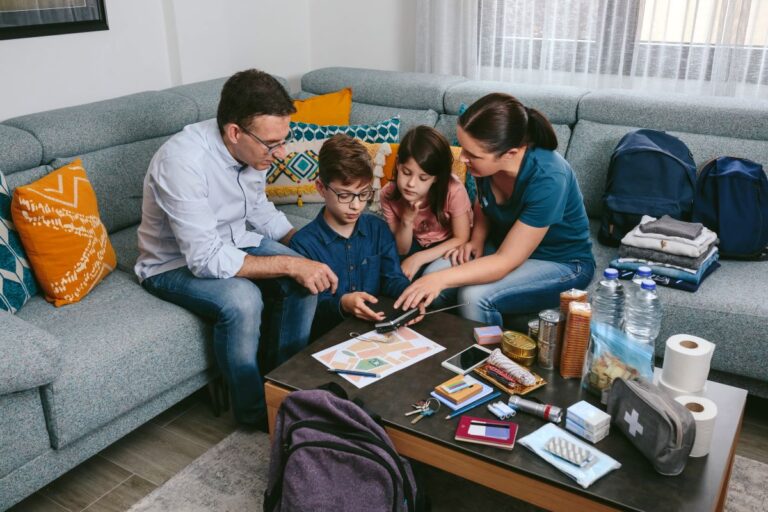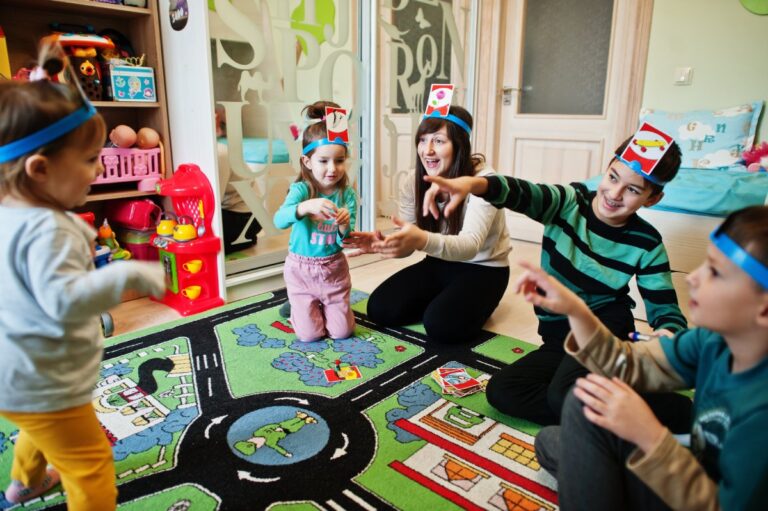Skipping Sunday School: Why More Parents Are Raising Kids Without Religion
Are you one of the many parents wondering if raising your kids without religion is the right choice? You’re not alone. Here’s why more parents are making this decision and what it means for your family.
1. Disillusionment with Religious Institutions

Scandals have rocked major religious institutions, shaking trust. Think about the Catholic Church’s sexual abuse scandals or financial mismanagement in mega-churches. It’s no wonder attendance is plummeting.
2. Conflict with Modern Values

Traditional religious views often clash with contemporary beliefs on LGBTQ+ rights, gender equality, and reproductive rights. If you value inclusivity, these conflicts can be hard to reconcile.
3. Scientific Skepticism

With scientific advancements, many find it hard to align religious teachings with evidence-based understanding. Evolution and climate change debates show how science and religion often clash.
4. Personal Negative Experiences

Have you or someone you know felt judged or ostracized by a religious community? Negative experiences can leave lasting impressions, pushing families away from religious settings.
5. Diverse Family Structures

Mixed-faith or non-religious marriages are more common. It’s easier to raise kids without religion than to navigate conflicting religious traditions.
6. Educational Priorities

Many parents feel time spent on religious activities could be better used for education or family bonding. With busy schedules, Sunday school often loses out to soccer games or study sessions.
7. Desire for Autonomy

You might want your kids to form their own beliefs. Encouraging exploration over dogma can lead to more open-minded, critically-thinking children.
8. Globalization and Cultural Exposure

Travel and the internet expose us to diverse cultures and beliefs. This broader perspective makes sticking to one religious path seem limiting.
9. Work-Life Balance

Balancing work, family, and rest is tough. Adding religious commitments can feel overwhelming, so many parents choose to simplify by dropping church activities.
10. Skepticism of Authority

Skepticism toward all forms of authority, including religious leaders, is growing. Parents want their kids to question and think independently rather than follow blindly.
11. Focus on Ethics and Morality

You might believe you can teach strong morals without religious doctrines. Emphasizing empathy, kindness, and integrity doesn’t require a religious framework.
12. Technology and Information Access

The internet provides a wealth of information. Kids today can learn about different beliefs and philosophies online, reducing reliance on religious instruction.
13. Concerns about Indoctrination

Worried about indoctrination? Many parents prefer their kids to learn how to think, not what to think, fostering independent thought over religious conformity.
14. Rise of Secular Communities

Secular support groups and communities offer the sense of belonging that churches used to provide. These groups can be just as supportive and nurturing.
15. Political and Social Polarization

The intersection of religion and politics can be uncomfortable. Many parents don’t want their kids exposed to politically charged religious environments.
16. Environmental Concerns

Some religious teachings don’t align with environmental sustainability. Parents might prefer to instill a respect for nature and conservation without religious constraints.
17. Mental Health Focus

Focus on mental health is increasing. Religious guilt and fear-based teachings can harm mental well-being, so parents seek healthier environments for their kids.
18. Interpersonal Relationships

Families today are diverse, with various religious backgrounds. Raising kids without a specific religion can promote harmony and acceptance in such environments.
19. Personal Growth

You might have left religion after a personal journey and want your kids to have the same freedom to explore and grow without religious pressure.
20. Safety Concerns

Concerns about safety in religious settings, including instances of violence like church shootings, make some parents wary of regular attendance.
21. Loss of Community

While raising kids without religion has its merits, it comes with the loss of a built-in community. Religious gatherings used to offer a sense of belonging and support. As we move away from these traditions, what will replace this sense of community? Parents must find new ways to build supportive networks for their families.
Reflecting on Community

Despite the benefits of a secular upbringing, the loss of community and collective gatherings is significant. How will we create new spaces for connection and support in our increasingly secular society? It’s a question worth pondering as we navigate this cultural shift.
Toxic Talk: 21 Phrases to Never Say to Your Kids

Are you worried about the impact of your words on your child’s well-being? Let’s tackle 21 phrases that might be causing more harm than you realize. Toxic Talk: 21 Phrases to Never Say to Your Kids
Breaking Ties: Recognizing When It’s Time to Go No-Contact with Parents

Deciding to go no-contact with a parent is a profound, often painful choice, but sometimes it’s necessary for personal well-being. Are you grappling with the decision to distance yourself from a toxic parental relationship? Breaking Ties: Recognizing When It’s Time to Go No-Contact with Parents
Stop the Stereotypes: 20 Gender-Based Comments Kids Don’t Need

It’s time to challenge traditional narratives that limit kids’ potential. Here are gender-specific phrases and ideas to avoid, fostering a supportive and open-minded environment for the next generation. Stop the Stereotypes: 20 Gender-Based Comments Kids Don’t Need
Featured Image Credit: Shutterstock / Kzenon.
For transparency, this content was partly developed with AI assistance and carefully curated by an experienced editor to be informative and ensure accuracy.







